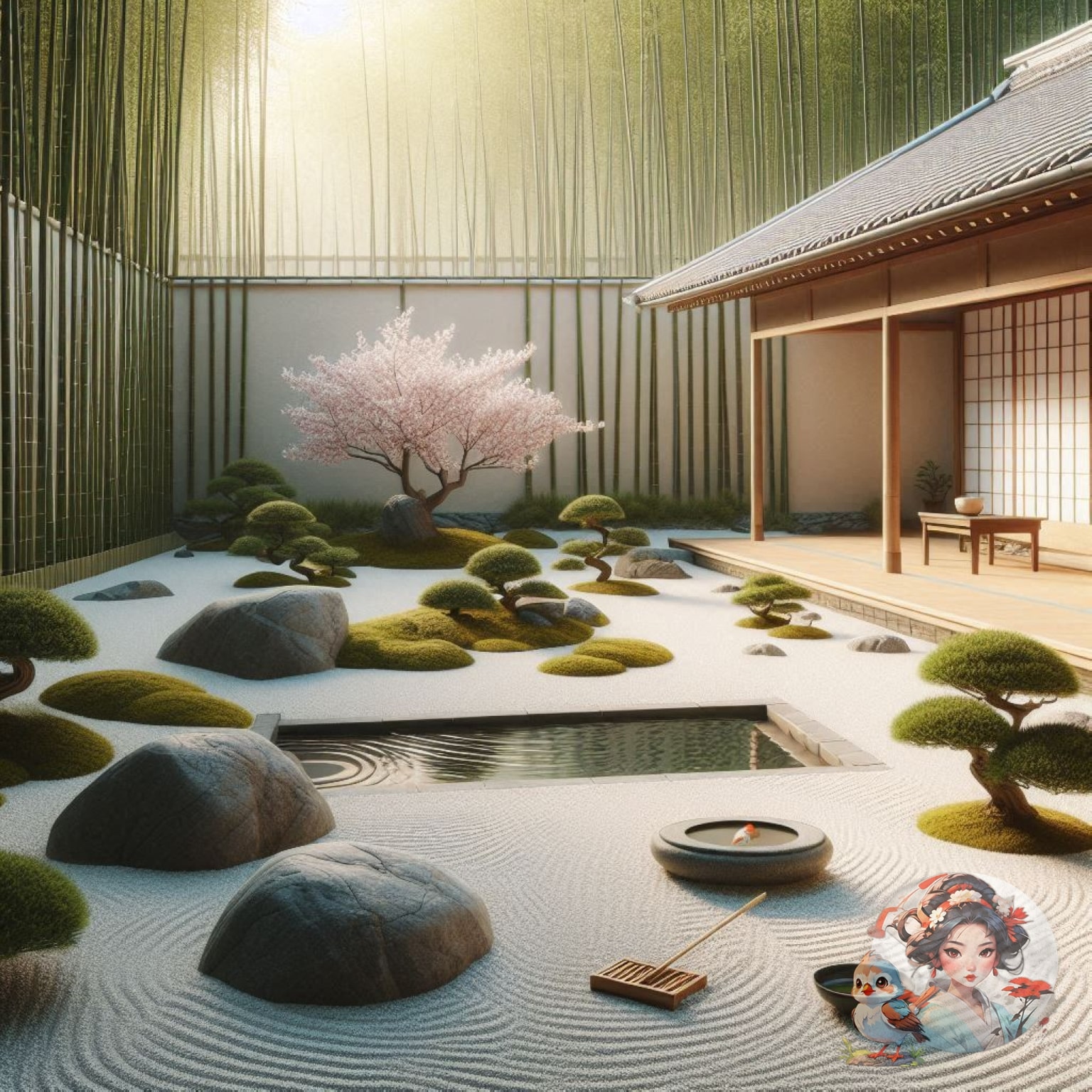Exploring Zen Aesthetics reveals a profound influence on both design and everyday life, deeply rooted in Japanese culture and Buddhist principles. The essence of Zen emphasises impermanence, interconnectedness and mindfulness, translating these concepts into minimalist designs that incorporate natural elements to create calm and balance. This mindful appreciation of the present moment fosters serene environments that promote mental clarity and emotional equilibrium.
In contemporary settings, these timeless principles are translated into modern interpretations that seamlessly blend spirituality and functionality. For example, interiors often feature clean lines, open layouts and natural materials such as wood and stone to create a harmonious atmosphere. Gardens designed according to Zen principles use elements such as rocks, water and plants to evoke a sense of peace and reflection.
Zen aesthetics also influence daily life. Practices such as mindful eating, meditation and simple, conscious living help people stay grounded and present. This approach encourages a lifestyle that prioritises quality over quantity, leading to greater satisfaction and well-being.
Understanding the integration of Zen principles into modern life reveals how this philosophy cultivates environments and habits that support a balanced and centred existence. The blend of spirituality and practicality offers a way to live more mindfully and harmoniously.
Table of Contents
ToggleZen concepts in Buddhism, rooted in the teachings of the 7th century, emphasise the impermanence and interconnectedness of life and nature. This philosophy encourages individuals to look beyond the superficial and to recognise the transient beauty in everyday moments. Spiritual awakening is central, promoting a deeper, more mindful existence that challenges conventional perceptions.
Embracing Zen principles promotes heightened awareness and a deep connection to the world. This not only enriches personal growth, but also inspires creative approaches in fields ranging from design to everyday practices. The essence of Zen is its ability to transform everyday experiences into opportunities for enlightenment and introspection.
In everyday life, this means paying close attention to the present moment, appreciating small details and finding beauty in simplicity. In doing so, one can discover a sense of peace and clarity, making each day an opportunity for personal growth and deeper understanding.
The evolution of Japanese aesthetics has been shaped by a deep sensitivity to the transient beauty of life and nature. This aesthetic philosophy, deeply intertwined with Japanese cultural evolution, emphasises the transience and subtle elegance of the everyday. Over the centuries, this perspective has fostered an appreciation of simplicity and natural forms, influencing art, architecture and daily rituals such as the tea ceremony.
Incorporating Zen principles into modern design requires a nuanced approach that goes beyond minimalism to achieve both aesthetic and spiritual depth. This method redefines minimalist interiors, transforming them into tranquil spaces that promote mindfulness and serenity. Zen design integrates natural elements and thoughtful spatial arrangements to create environments that promote inner peace. The use of neutral colour palettes, organic materials and uncluttered layouts embodies the Zen ethos of harmony and balance.
Incorporating Zen principles into everyday life encourages a mindful appreciation of the present moment and the fleeting beauty of existence. This mindful approach fosters a deeper connection with one’s surroundings and encourages individuals to create interiors that reflect serenity and simplicity. By incorporating natural elements and minimalist designs, one can cultivate a space that embodies calm and focus.
Zen teaches that true beauty lies in impermanence, urging us to cherish fleeting moments. This philosophy extends beyond physical spaces to promote mental clarity and emotional balance. Every decision, from home decor to daily routines, becomes a conscious act of mindfulness.
Integrating Zen into everyday life isn’t just about aesthetics; it’s a transformative approach to living with purpose and grace.
Navigating the complexities of modern life, contemporary interpretations of Zen offer a framework for integrating its timeless principles into our daily routines and environments. Modern applications of Zen emphasise spiritual principles beyond aesthetics, promoting spaces that encourage mindful living. Minimalist designs, characterised by clean lines and uncluttered spaces, embody the essence of Zen. These designs are not just about simplicity, but about creating environments that promote serenity and focus.

Incorporating Zen principles can transform our homes into sanctuaries that remind us of the impermanence of life. This blend of spirituality and design enriches our mental well-being and demonstrates that Zen’s influence is profound and adaptable to modern lifestyles. By embracing these principles, we foster a sense of peace and clarity in our daily lives.